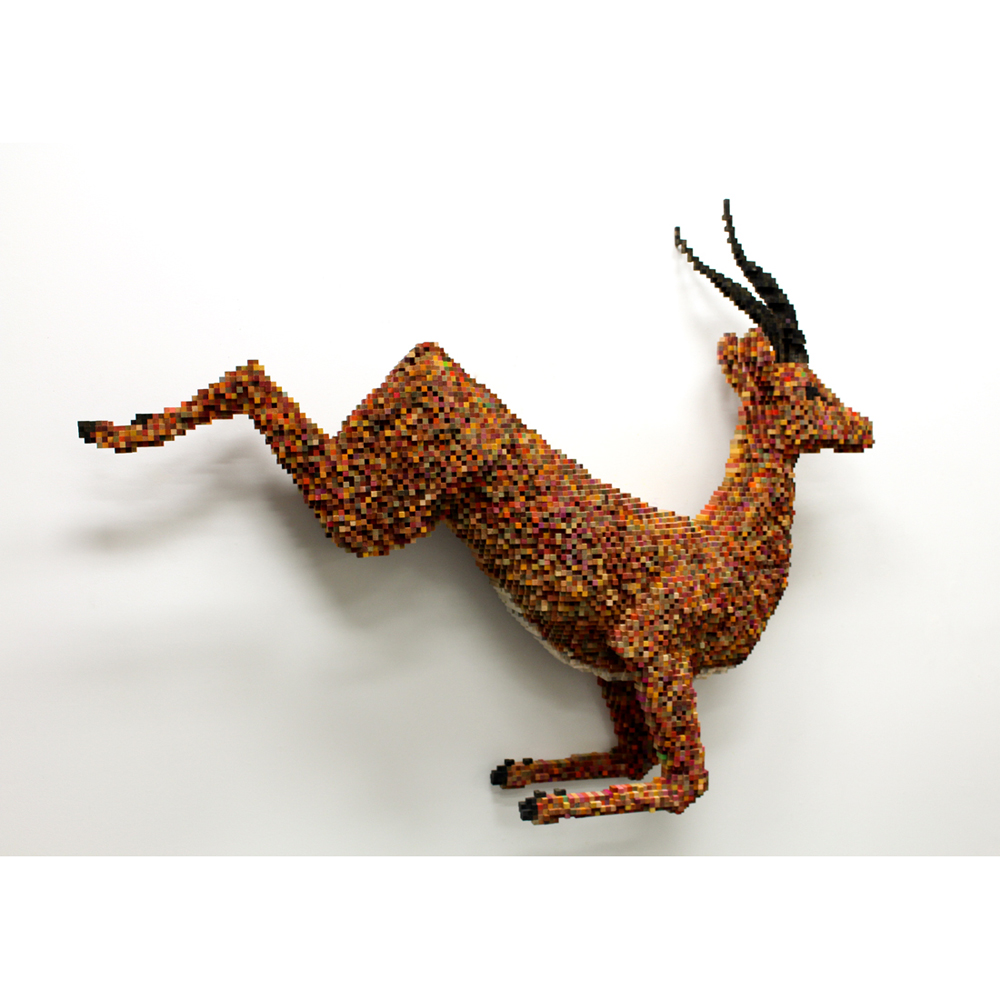Artwork Description
Pronking Impala
Dimensions: 47 x 62 x 12″
Year: 2014
Media: basswood, ink, acrylic paint
Shawn Smith’s basswood, ink, and acrylic paint piece, Pronking Impala, is a sculptural and pixelated rendition of an impala ‘pronking’—a term that describes when an animal raises all four limbs from the ground in a fearful response to danger. Smith captures the animal in a dynamic moment made still by the impala’s immortalization in wood, encouraging the viewer to question their own culpability in the impala’s instinctual flight. By leaving the animal in a moment of kinetic ambiguity, Smith suggests that the impala’s impending extinction is not irrevocable, but may be remedied by human action and awareness.
Shawn Smith’s work focuses on themes of labor, technology, and science, where each of his sculptural pieces depicts a species facing extinction through human influence. Smith believes that the increasing quantities of technology in our day-to-day lives has begun to set the standard for our inter-species relations, through which we often view animals in the light of a screen rather than in a natural environment. By pixelating his works, Smith both demands acknowledgement for the animals decreasing numbers and for viewers to question their relationship with technology. Smith’s works cannot be viewed accurately through images, but rather, must be seen in person to understand the craftsmanship required to construct them and their full range of depth and color. This interacts with his conceptualizations of ‘detachment’, where attachment to his work is contingent upon reality rather than technological encounters. Smith also draws on the idea of process within his oeuvre by playing with construction and deconstruction; each of his sculptural works are reduced to mere pixels, yet are made from individually hand-cut and dyed blocks. Consistent with his participation in Turner Carroll’s Science as Art exhibition, Smith casts himself in the role of ‘artist as alchemist’, drawing on precise measurements to render visual representations of dying species in a way that positions him as an artistic and mathematical creator.
by Keira Seidenberg

